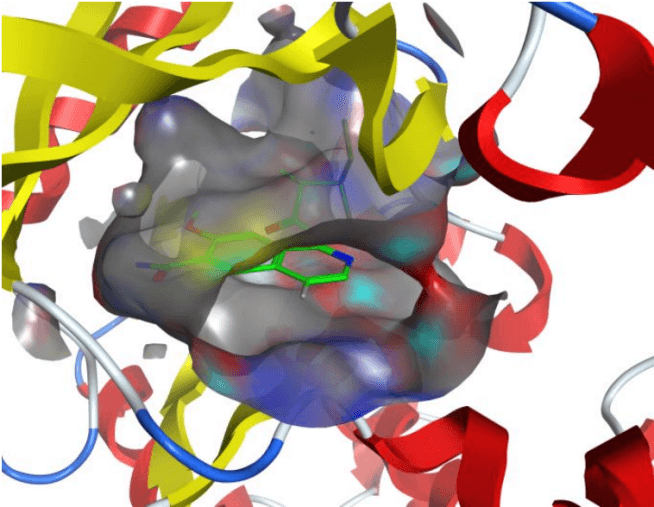PROTAC has been successfully applied in target protein degradation, which is achieved by utilizing intracellular ubiquitin proteasomal system (UPS). The UPS is pivotal in the regulation of almost all cellular processes, including immune response, inflammation, apoptosis, and so forth. PROTACs are promising in autoimmune diseases treatment and some of them have been successfully developed to enter early clinical studies. As an expert in PROTAC development, BOC Sciences offers comprehensive PROTAC design and development services for autoimmune diseases drug discovery. We offer one-stop services to help our customers accelerate the development of new drugs.
Introduction
Immune system is to protect the body from bacteria, parasites, viruses and cancer cells. However, the overactive immune system may cause autoimmune diseases. Autoimmune diseases refer to the body’s immune response to self-antigens causes damage to its own tissues, which are caused by acquired immune dysfunction and characterized by different degrees of damage to cells and tissues, even organ failure and death. The common autoimmune diseases include multiple sclerosis (MS), systemic lupus erythematosus (SLE), rheumatoid arthritis, psoriasis, Type 1 diabetes mellitus, etc.
A PROTAC is a bifunctional molecule that consists of three parts: a ligand that interacts with the protein to be degraded (warhead ligand), a different ligand that binds to an E3 ubiquitin ligase and a linker that connects both ligands. PROTACs have shown strong potency in disease treatment, some of them have reached the clinical phase, like those developed against the IRAK4 in autoimmune diseases.
Targets in Autoimmune Diseases
- Interleukin-1 Receptor-Associated Kinase 4 (IRAK4), a key signal transductor and the nearest kinase in the downstream of the Toll signaling pathway, is a key mediator of innate immunity. IRAK4 overactivation is linked with several autoimmune diseases, such as MS, SLE, and Psoriasis.
- Bruton’s tyrosine kinase (BTK) is a member of the Tec family of nonreceptor tyrosine kinases and plays a major role in B-cell survival, activation, proliferation, differentiation, and maturation. In addition, BTK signaling is involved in innate immune responses and regulates the production of proinflammatory cytokines. Inhibition of BTK has been shown to affect cancer development and cell viability and to improve the treatment of autoimmune diseases such as rheumatoid arthritis and lupus.
PROTACs in Autoimmune Diseases
The vast majority of newly developed PROTACs currently in clinical trials target a variety of cancers. However, given their potential to degrade undruggable targets, the scope of PROTAC is expanding beyond oncology. With the development of PROTAC technology, this innovative therapeutic approach shows its potential in autoimmune diseases treatment. Two PROTAC compounds already in phase I clinical trials that could test PROTAC modality in non-oncology indications are KT-474, and NX-5948, targeting BTK and IRAK4, respectively, both in Phase I clinical trials for the treatment of various immunoinflammatory diseases, such as rheumatoid arthritis.
In academia, there are many PROTACs have been developed for autoimmune diseases. For example, a series of PROTAC molecules targeting IRAK4 have been reported. Molecular docking studies based on the crystal structures of IRAK4 and its kinase inhibitor complexes successfully predicted the optimal location for binding IRAK4 ligands. Finally, multiple IRAK4 PROTAC molecules were generated by assembling E3 ligands, linker and IRAK4 ligands.
 Fig 1. Co-crystal structure of inhibitor with IRAK4 kinase domain (Nunes, 2019)
Fig 1. Co-crystal structure of inhibitor with IRAK4 kinase domain (Nunes, 2019)
Our Services
Related Products
Our Advantages
- PROTAC design and optimization
- Well-established PROTAC platform and one-stop service
- Expertise and experienced scientific team
- Quality services and products
- Data analysis, detailed results reporting and discussion
- Highly reliable and reproducible results
Project Workflow

References
- Nunes, J., et al. Targeting IRAK4 for Degradation with PROTACs, ACS Med. Chem. Lett., 2019, 10, 1081–1085.
- Tinworth, C. P. et al. PROTAC-mediated degradation of bruton’s tyrosine kinase is inhibited by covalent binding. ACS Chem. Biol., 2019, 14, 342–347.

 Fig 1. Co-crystal structure of inhibitor with IRAK4 kinase domain (Nunes, 2019)
Fig 1. Co-crystal structure of inhibitor with IRAK4 kinase domain (Nunes, 2019)
